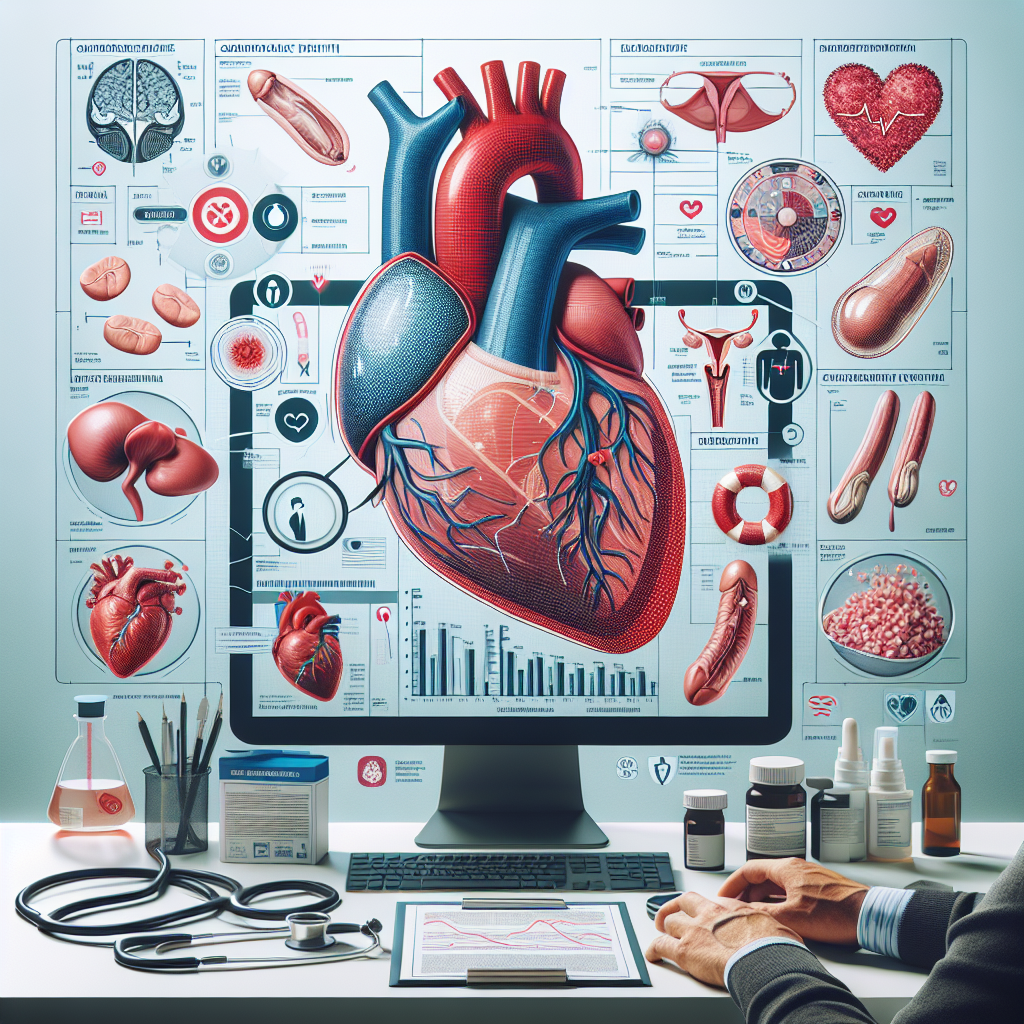ED and Cardiovascular Health: The Surprising Connection Your Doctor May Not Mention
Why Erectile Dysfunction Deserves More Attention
In men’s health, certain topics tend to remain unspoken — erectile dysfunction (ED) being one of them. Often considered private or even taboo, many men avoid addressing ED until it becomes persistent. But what if this issue is more than a sexual health problem? Mounting evidence suggests that ED may be an early warning sign of cardiovascular disease (CVD) — a potentially life-threatening condition.
According to the American Heart Association, nearly half of men between the ages of 40 and 70 will experience ED. In many cases, this points to underlying problems such as atherosclerosis or dysfunction of the blood vessels. This article explores the critical connection between ED and heart health — and what proactive steps men can take to protect both.
What Is Erectile Dysfunction?
Erectile dysfunction refers to the consistent difficulty in achieving or maintaining an erection sufficient for sexual activity. While occasional issues are common, chronic ED impacts approximately 30 million men in the United States. Although the likelihood increases with age, ED is not an inevitable part of growing older.
Typical causes include stress, anxiety, diabetes, or low testosterone. However, a frequently overlooked factor is poor cardiovascular health. The link is significant enough that more physicians are beginning to consider ED a precursor to heart problems.
For example, clogged arteries reduce blood flow to the heart — and to the penis. Just like buildup in a pipe reduces water pressure, arterial plaque restricts blood circulation, leading to ED symptoms.
Understanding the Biological Link Between ED and Heart Disease
At first, ED and heart disease might seem unrelated. But vascular function ties them closely together. An erection depends on healthy arteries that can properly dilate to allow blood flow to the penis. Any disruption in this system could result in difficulties with sexual performance.
Because penile arteries are narrower (1–2 mm in diameter) than coronary arteries (approximately 3–4 mm), they are often the first to show signs of blockage. This means ED can serve as an early alert for cardiovascular issues.
As Dr. Michael Blaha of the Johns Hopkins Ciccarone Center for the Prevention of Heart Disease states, “Erectile dysfunction is like a check engine light for the vascular system. It should not be overlooked.”
Men experiencing ED are up to 50 percent more likely to suffer from a heart attack or stroke within the next three to five years.
Scientific Evidence Supporting the Connection
Multiple large-scale studies support the correlation between ED and cardiovascular disease. A meta-analysis published in the journal Circulation examined data from over 36,000 men and found that those with ED had significantly higher risks:
– 44 percent increased risk of major cardiovascular events
– 25 percent increased risk of coronary heart disease
– 55 percent higher risk of all-cause mortality
These associations remained even after accounting for other variables such as age, smoking, diabetes, and obesity. This firmly establishes ED not just as a symptom, but also as a strong independent predictor of heart health.
Why Your Doctor May Not Discuss the Link
Given the strong relationship between ED and heart disease, one might expect this topic to be standard in clinical conversations. However, several factors contribute to its under-discussion:
1. Discomfort on Both Sides
Many people feel awkward talking about sexual health during brief medical appointments, and some healthcare professionals may shy away from the topic.
2. Focus on Immediate Symptoms
Doctors frequently treat ED with medications such as Viagra without delving into underlying causes, including cardiovascular health.
3. Knowledge Gaps Among Providers
Not all physicians are fully aware of the intricate connection between sexual dysfunction and cardiovascular disease. Fortunately, this mindset is changing. Institutions like Mayo Clinic now advise that a diagnosis of ED should prompt a cardiovascular risk evaluation.
How to Take Action For Both Conditions
Ignoring erectile dysfunction could harm more than your love life — it could signal deeper health issues. Here are proactive measures men can take to enhance both sexual and heart health:
1. Schedule a Comprehensive Medical Examination
– Be open with your physician about ED symptoms.
– Request full cardiovascular testing, including blood pressure, lipid profiles, A1C levels, and possibly an EKG or cardiac stress test.
2. Adopt a Heart-Healthy Lifestyle
– Embrace nutritious eating patterns like the DASH or Mediterranean diets focused on whole grains, lean proteins, fruits, and vegetables.
– Aim for at least 150 minutes of moderate physical activity per week.
– Quit smoking and limit alcohol consumption.
– Prioritize quality sleep and implement stress-management techniques.
3. Manage Chronic Conditions Effectively
Conditions such as high blood pressure, diabetes, and elevated cholesterol contribute significantly to both ED and cardiovascular disease. Collaborate with your doctor to keep these conditions under control.
4. Consult the Right Specialists
Urologists specialize in diagnosing and treating ED, while cardiologists assess heart and vascular function. Seeking help from both experts leads to a more accurate diagnosis and safer, more effective treatment plan.
Even if you are in your 40s and have no known heart disease, experiencing ED could be a crucial reason to investigate your cardiovascular health. Taking action now may add years to your life.
Key Takeaway: Listen to Your Body’s Signals
Erectile dysfunction is not just a quality-of-life issue — it is potentially an early warning sign of serious cardiovascular concerns. Recognizing ED as a signal from your body can lead to timely interventions that improve both your heart function and sexual health.
The next time you or someone you care about experiences ED, don’t ignore it. Have a candid conversation with a medical professional and make choices that benefit your overall well-being.
Take the First Step Toward Better Health
Ready to make a change? Explore reliable and confidential treatment support with online resources such as eDrugstore.com, where licensed professionals provide guidance tailored to your needs.
References
– Dong JY, Zhang YH, Qin LQ. Erectile dysfunction and risk of cardiovascular disease: Meta-analysis of prospective cohort studies. Circulation. 2011;124(4):385-391.
– American Heart Association. Erectile dysfunction and cardiovascular disease: What’s the connection? Heart.org.
– Mayo Clinic. “Erectile Dysfunction: When to See a Doctor.” Mayoclinic.org.
Stay informed. Take control. Prioritize both your heart and your sexual health today.


